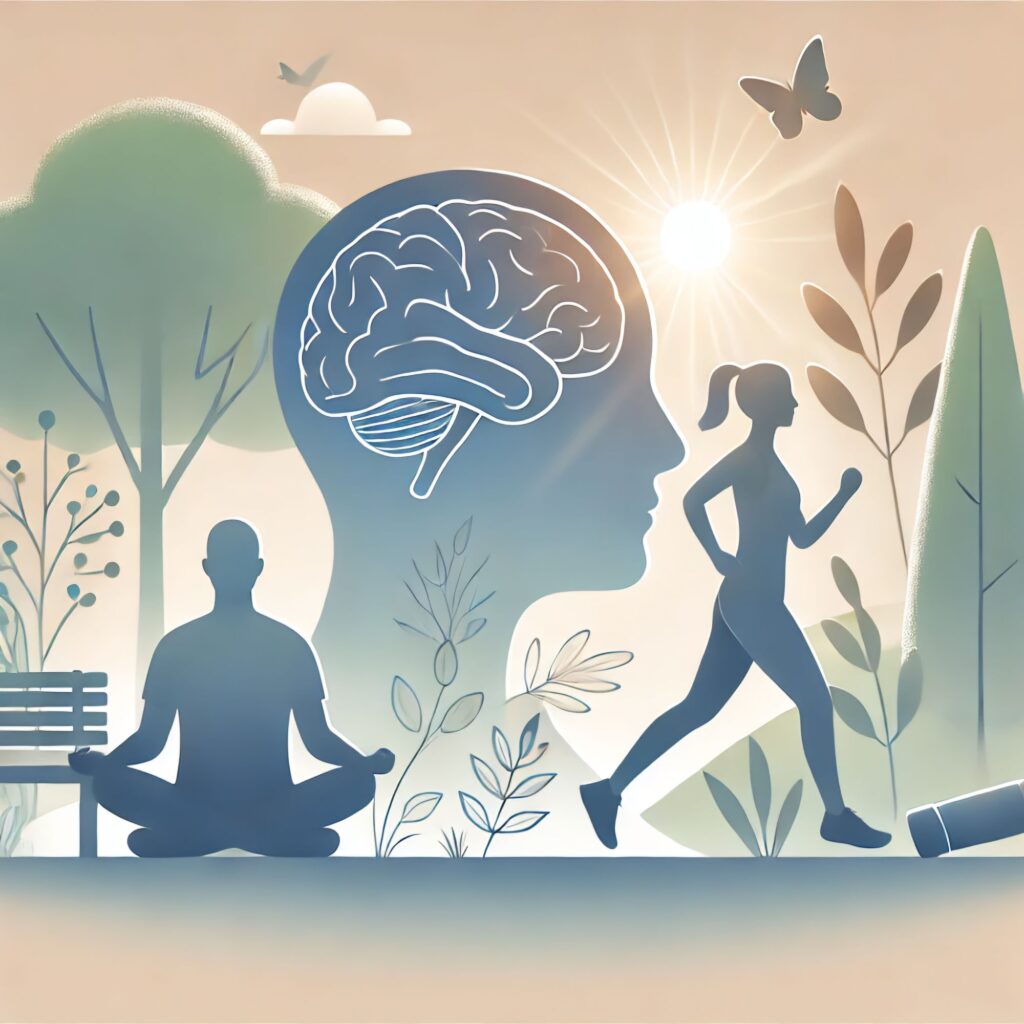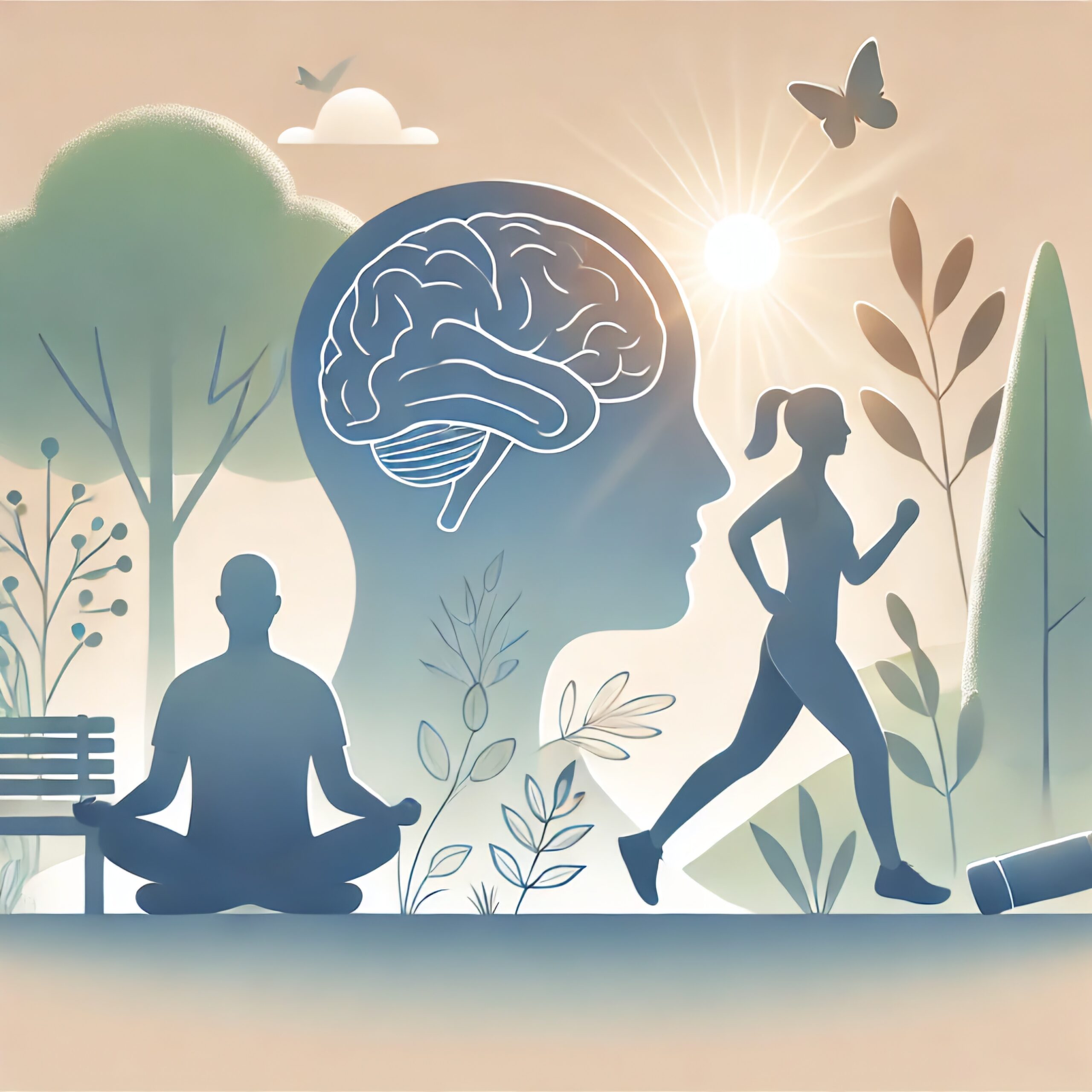How Physical Activity Impacts Mental Health: New Research and Results
How physical activity impacts mental health is a question gaining increasing attention from researchers and global health campaigns. Regular exercise does more than just enhance physical fitness—it also provides profound benefits for mental health. Studies show that physical activity can reduce symptoms of depression, alleviate anxiety, and improve cognitive function. Global campaigns, including those by the International Olympic Committee (IOC), emphasize the role of exercise in promoting mental well-being.
This article explores the connection between physical activity and mental health, highlights the latest research, and discusses global initiatives supporting this essential aspect of wellness.
Why Focus on Physical Activity and Mental Health?
Physical activity plays a crucial role in maintaining both physical and mental health. The World Health Organization (WHO) highlights that regular exercise reduces the risk of chronic illnesses and enhances overall well-being. In addition, exercise promotes the release of endorphins, often called “feel-good hormones,” which directly impact mood and mental resilience.
For tips on staying active, visit our Physical Activity page.

How Physical Activity Improves Mental Health
1. Reducing Symptoms of Depression and Anxiety
Exercise is a natural and effective way to combat depression and anxiety. Activities like walking, running, or yoga increase endorphin levels and help regulate stress hormones like cortisol. Studies show that individuals who engage in regular physical activity are less likely to experience severe depressive symptoms.
Reference: WHO Guidelines on Physical Activity
2. Enhancing Cognitive Function
Physical activity stimulates blood flow to the brain, improving memory, focus, and problem-solving skills. Activities like aerobic exercises and strength training are particularly beneficial for brain health. Research suggests that exercise can also slow cognitive decline associated with aging.
3. Improving Sleep Quality
Regular physical activity helps regulate the body’s internal clock, improving sleep patterns. Better sleep quality contributes to improved mental health by reducing fatigue and enhancing emotional stability.
Global Campaigns Promoting Physical Activity for Mental Health
1. International Olympic Committee (IOC)
The IOC promotes the mental health benefits of sports through global initiatives like “Athlete365,” which offers resources and support for athletes to maintain their mental well-being.
Reference: IOC Athlete365 Mental Health Support
2. WHO’s “Move for Health” Campaign
The WHO launched the “Move for Health” initiative to encourage physical activity as a tool for improving mental health globally. This campaign focuses on increasing awareness about the mental health benefits of regular exercise.
Reference: WHO “Move for Health” Campaign
3. Local Community Programs
Community-based fitness programs, such as walking groups and yoga sessions, provide accessible ways for people to engage in physical activity while benefiting from social interactions.
Latest Research on Physical Activity and Mental Health
1. Exercise as a Preventive Tool
Recent studies confirm that individuals who engage in regular exercise are at a lower risk of developing mental health disorders. The preventive benefits extend across all age groups.
2. Physical Activity and Neuroplasticity
Exercise promotes neuroplasticity, the brain’s ability to adapt and form new neural connections. This is crucial for overcoming trauma and managing stress effectively.
3. Long-Term Benefits
Research shows that the mental health benefits of physical activity extend beyond immediate effects. Regular exercise creates lasting positive changes in mood and brain function.
Challenges in Promoting Exercise for Mental Health
Despite its benefits, promoting exercise as a mental health tool faces challenges:
Lack of awareness: Many people are unaware of the mental health benefits of exercise.
Time constraints: Busy schedules prevent individuals from prioritizing exercise.
Access to facilities: Not everyone has access to safe or affordable spaces for physical activity.
How to Incorporate Physical Activity into Daily Life
Here are simple ways to make exercise part of your routine:
Start small: Begin with 15-20 minutes of walking or stretching daily.
Join a group: Participate in community fitness programs.
Set realistic goals: Focus on consistency rather than intensity.
Visit our Healthy Habits page for more ideas on integrating exercise into your daily routine.
Conclusion
How exercise impacts mental health is a topic of growing importance. By reducing stress, enhancing cognitive function, and improving emotional well-being, exercise is a powerful tool for maintaining mental health. Global campaigns by organizations like the IOC and WHO continue to raise awareness and encourage people to prioritize physical activity.
For more insights on physical and mental well-being, explore our pages on Physical Activity and Healthy Habits. Start moving today for a healthier mind and body!
